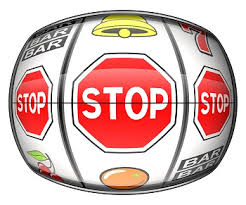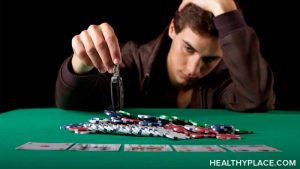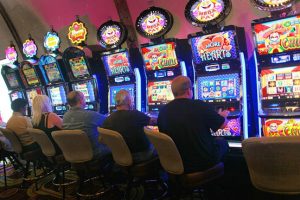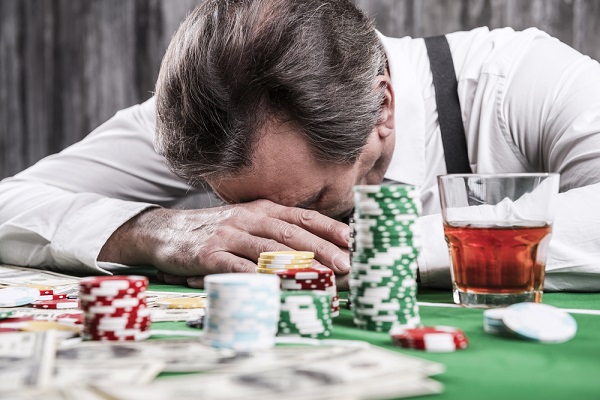Although many of us enjoy gambling and love to place a wager every now and then, some people find it difficult to control themselves or to prevent themselves from gambling more than they should. Gambling disorder, or compulsive gambling, is the term used to describe an uncontrollable urge to continue gambling, even though it can take a serious toll. Gambling stimulates the reward system in the brain, much in the same way as alcohol or drugs, and this can lead to addiction.
People who are compulsive gamblers may chase bets even though they are losing, deplete their savings, accumulate crippling debts, hide their behavior from their friends or family members, and may even turn to fraud or theft to support their addiction. Having a gambling disorder is a very serious condition and it destroys families and lives. While treating the problem may be difficult, it is not impossible, and getting professional help is the key to success.

What Are the Symptoms of Gambling Disorder?
The main signs that you may be a compulsive gambler include:
- A preoccupation with gambling.
- A need to place larger wagers to get a similar thrill level.
- Inability to stop or reduce gambling.
- Feeling irritable or restless if you try to stop gambling.
- Gambling to relieve depression, anxiety or guilt or to escape existing problems.
- Chasing losses.
- Lying to friends and family to hide how much you are gambling.
- Putting your job or relationship at risk because of your gambling.
- Turning to fraud or theft to get more money for gambling.
- Asking to borrow money from other people because you are struggling financially because of your gambling.
When to Seek Professional Help
 If friends, co-workers or family members have commented on how much you gamble or have expressed their concerns about the amount of time or money you are spending on gambling, it is always worth listening to them. Most addicted gamblers deny that they have a problem, or just don’t realize how much of a problem they really have. If you recognize any of the symptoms listed above, it could be time to seek professional help.
If friends, co-workers or family members have commented on how much you gamble or have expressed their concerns about the amount of time or money you are spending on gambling, it is always worth listening to them. Most addicted gamblers deny that they have a problem, or just don’t realize how much of a problem they really have. If you recognize any of the symptoms listed above, it could be time to seek professional help.
Why Do People Become Compulsive Gamblers?
There is no single reason why someone gambles compulsively. Some people may be genetically or biologically disposed to compulsive gambling, while there are several risk factors that also contribute. These include:
- Mental health problems, including OCD, ADHD, depression, anxiety, and personality disorders
- Age – More compulsive gamblers are young or middle-aged. People who start gambling at a young age are more likely to develop a problem.
- Sex – More compulsive gamblers are male, although women who start to gamble later in their life often develop an addiction more rapidly.
- Influences of friends or family – When friends or family members also have problems with gambling, this is a major influence.
- Medication – Some drugs, known as dopamine agonists, may cause compulsive behavior, such as gambling.
- Personality – If you are highly competitive, easily bored, restless or impulsive, you may be more at risk of problem gambling.
Complications Associated with Gambling
Although gambling can be a lot of fun, if it gets out of hand, it can affect your life for a long time. It can cause the following issues:
- Problems holding down a job.
- Difficulties in making relationships work.
- Financial difficulties and debts.
- Legal problems.
- Poor health.
Can Gambling Problems Be Prevented?
There is no tried-and-tested way of preventing compulsive gambling. However, there are some educational programs that target groups and individuals who may be at greater risk, and these could prove helpful. Staying away from casinos and away from online gambling sites may help and seeking professional assistance at the first sign of addiction may also be the way forward.
Diagnosing Gambling Problems
 When someone thinks that he or she could have a gambling problem, it’s important for him or her to make an appointment with his or her doctor to ask for an evaluation. Alternatively, he or she should contact a mental health-care professional who can help to diagnose and treat the condition.
When someone thinks that he or she could have a gambling problem, it’s important for him or her to make an appointment with his or her doctor to ask for an evaluation. Alternatively, he or she should contact a mental health-care professional who can help to diagnose and treat the condition.
When diagnosing problem gambling, there are a few questions that may be asked by a doctor to determine whether someone is a sufferer.
- Doctors will often ask some questions about gambling habits and may talk to friends or family members about what is happening relating to gambling and how it is affecting the individual and his or her family.
- Doctors will review medical information to see if there is any medical reason for compulsive gambling, such as medication or other health problems.
- Carrying out a psychiatric assessment is often a key element in diagnosing a gambling problem. Discussing feelings, behavior patterns, thoughts, and other symptoms will help to determine whether the patient should receive an evaluation for a mental health disorder, which could be the cause of excessive gambling.
- Doctors may also use the DSM-5 (or Diagnostic and Statistical Manual of Mental Disorders), which is a publication from the American Psychiatric Association and which lists the criteria to diagnose a gambling disorder.
It is only by seeking professional medical help that compulsive gamblers can get the treatment and help that they need to get their life back on track and to stop their compulsive behavior.
Treating Gambling Disorders
It is difficult to treat compulsive gambling because many people do not realize that they are problem gamblers. However, a key element in being able to get treatment is acknowledging that there is a problem to be resolved. Treatments include:
- Therapy – CBT (cognitive behavioral therapy) is often beneficial. This therapy systematically exposes sufferers to the behavior that they should unlearn while teaching new skills to lessen the urge for gambling.
- Medication – Mood stabilizers or antidepressants may often help treat the problems that accompany compulsive gambling, including ADHD, OCD, and depression.
- Self-help groups – Talking to other people who are experiencing the same problems can be helpful.
- Outpatient and inpatient programs – There are many programs designed to help compulsive gamblers to change their behavior
How to Prevent a Relapse
 People who receive treatment for their gambling disorder may still relapse over time, especially if they end up spending a lot of time with other people who enjoy gambling or if they end up visiting casinos or other gambling environments. People who are worried that they are going to begin gambling again should contact their doctor or health professional straight away to address the problem before it gets out of hand again.
People who receive treatment for their gambling disorder may still relapse over time, especially if they end up spending a lot of time with other people who enjoy gambling or if they end up visiting casinos or other gambling environments. People who are worried that they are going to begin gambling again should contact their doctor or health professional straight away to address the problem before it gets out of hand again.
Key Recovery Skills to Resist Compulsive Gambling
There are a few recovery skills that can help compulsive gamblers to resist their urges, including:
- Staying focused on the goal of not gambling.
- Telling themselves that gambling, even a little bit, is too risky since one wager will almost always lead to another.
- Allowing themselves to ask others for help. Willpower is often not enough to beat compulsive gambling, so asking a friend or family member to help in following a treatment plan is essential.
- Recognizing and avoiding trigger situations.
The families of compulsive gamblers may also often benefit from receiving counseling, and this holds true even when the gambler does not take part in therapy. This is because it can be helpful for family members to understand how compulsive gambling affects their loved one and how they can offer support.
Disclaimer: All images are copyright to their respective owners and are used by USA Online Casino for informational purposes only.










